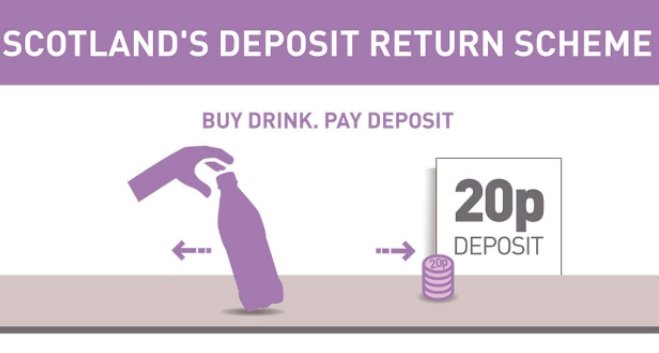Scottish Secretary refuses to give evidence on Internal Market Act powers
The UK Government has rejected a second invitation from a Scottish Parliament committee to explain its decision to block a deposit return scheme (DRS) in Scotland. The Net Zero, Energy and Transport Committee wanted to hear from Scottish Secretary Alister Jack and other UK ministers about the impact of the Internal Market Act (IMA) on devolved powers and intergovernmental relations. However, Jack said the responsibility for answering questions on DRS fell with the Scottish Government, not the UK Government.
Deposit return scheme delayed by UK legislation
The DRS is a policy that aims to increase recycling rates and reduce littering by requiring consumers to pay a small deposit when they buy drinks in bottles or cans, which they can get back when they return the empty containers. The Scottish Government planned to introduce the scheme in July 2022, but had to postpone it until 2023 because of the IMA. The IMA is a law that sets out the rules for trade and cooperation between different parts of the UK after Brexit. It also gives the UK Government the power to override devolved policies that it deems incompatible with the UK internal market.
The UK Government used this power to prevent Scotland from implementing its own DRS, arguing that it would create barriers to trade and distort competition within the UK. The Scottish Government disagreed, saying that its scheme was compatible with the UK internal market and that it had sought an exemption from the IMA. The Scottish Government also accused the UK Government of undermining devolution and ignoring the views of the Scottish Parliament, which rejected the IMA.

Committee chair criticises UK Government for misunderstanding invitation
The Net Zero, Energy and Transport Committee, which is chaired by Conservative MSP Edward Mountain, wanted to scrutinise the UK Government’s decision and its implications for devolution and climate change. The committee invited Jack and other UK ministers from the Department for Environment Food and Rural Affairs (Defra) to give evidence in July, but they declined. The committee then sent a second invitation in August, with a deadline of September 30.
However, Jack replied on September 8 without agreeing to attend. He said that the UK Government was working with the Scottish Government to make the DRS “interoperable” across the UK, and that stakeholders would be updated as plans developed. He also said that the Scottish Government should answer questions on its own policy, not the UK Government. He added that he had always been clear about when discussions between the two governments had taken place on intergovernmental relations.
Mountain responded on September 15, saying that he was disappointed that Jack had “misunderstood” the invitation. He said that while he agreed that questions on Scottish Government policy were best directed at Scottish ministers, he still wanted to hear from the UK Government about how it exercised its powers under the IMA and how it affected devolved policies. He said that this was a “new, complex and developing area” for the Scottish Parliament, and that he wanted to understand the factors that were in play. He also said that it was difficult to understand intergovernmental relations without hearing from both governments. He asked Jack and other UK ministers to reconsider their invitation, setting a new deadline of October 30.
UK Government accused of snubbing Scottish Parliament committees
This is not the first time that Jack has refused to appear before a Scottish Parliament committee. He has previously declined four invitations to give evidence on various issues, including his use of a Section 35 order to block gender reforms legislation in Scotland. Other UK ministers have also rejected requests from Holyrood committees, such as Chancellor Jeremy Hunt who refused to attend the Finance Committee to discuss UK fiscal matters.
The SNP has accused the UK Government of showing “contempt” for the Scottish Parliament and its committees, and of undermining devolution and democracy in Scotland. The SNP has also called for more powers for Scotland, including over immigration, welfare and taxation. The party has also pledged to hold another referendum on independence if it wins a majority in next year’s Scottish Parliament elections.
What will happen next?
The Net Zero, Energy and Transport Committee is waiting for a response from the UK Government by October 30. If the UK Government agrees to attend, it will be an opportunity for both governments to explain their positions and answer questions from MSPs on DRS and other issues related to devolution and climate change. If the UK Government declines again, it will likely increase tensions between Westminster and Holyrood, and fuel calls for more powers or independence for Scotland.


















